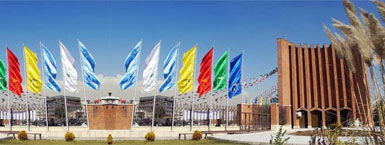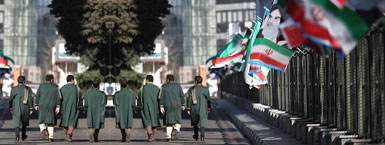Research Groups
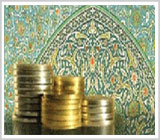
Islamic Economics
The Economic Research Institute recognizes the activities within the scope of Islamic economics as a very important objective and approach. This approach has been adopted and continuously followed since the establishment of the Economic Research Institute in early 1990s. Of the most significant activities adopted by the research Institute in the field of Islamic economics, one may refer to holding biannual rounds of congress on Islamic economy, annual meetings with experts of Islamic economics, and training and research workshops and publishing textbooks on the Islamic economics. More recently, close collaborations with Islamic Economics Scientific Association of Iran represent a major branch of activities undertaken by the Economic Research Institute. As of present, strategic plans of the Economic Research Institutes imply that the Institute has set to continue its activities in the scope of Islamic economics as a major goal and at an improved level of quality. It also has started to 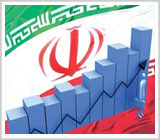
Iran's economy and development
Iran is the 17th, 10th, and 3rd most populated country in the world, Asia, and the region, respectively. In terms of area, Iran is the 17th largest country in the world. Islamic Republic of Iran is among the largest 20 economies (ranked 17th in some years) of the world, one of the largest oil producers worldwide, and top holder of gas reserves around the world with numerous other natural reserves, escalating its rank in the world in terms of natural resources, as compared to its population. Iran?s economy is a complex and transiting one. The economy is composed of a large public sector administered and controlled strictly under a centralized scheme through executive orders. A major portion of Iran?s export is based on petroleum, gas, and petrochemical products. On the other hand, some four decades of inflation and unemployment (except for only one or two years) along with smuggling, substantive administrative corruption, weak private sector, inefficient economic administration, and in 
Research economics
During the past centuries, the economy has experienced numerous thoughts and evolutions. A major portion of the evolutions has been focused on addressing this long-lasting human?s need: ?how is it possible to allocate a limited resources to human?s unlimited needs and desires in the best possible way?. Previously, the most important resources available to human were limited to the land and natural resources. However, with passage of time, an emphasis was placed on fundamental roles of capital and labor as key economic inputs. Subsequently, acknowledging the limited quantities of such inputs, efforts were made to enhance the quality of adopting the resources. In this way, the subject matter of thinking and creativity, and in general, the influence of knowledge and practice in the field of economy became increasingly important. On the other hand, as time passed, humans found out that they can largely dominate over quantitative limitations in the inputs through research for scientific me 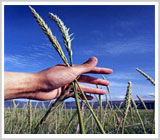
Agricultural economics
Agriculture plays an undeniable role in employment, supply of strategic products, and food security. The climatic diversity and increased demand for various crops, livestock and aquatic products in Iran has positioned the agriculture sector at the focal point of the national development plans. Consistency of the agricultural sector with environment is another reason behind the particular attention paid to the agriculture. The agricultural economics group performs research in various fields including trading of agricultural products, market regulation, guaranteed purchase, pricing, production, and cost management in farming, forestry, horticulture, animal husbandry and fish and aquaculture farming. 
Urbanand Regional planning
The urban and regional planning group of the Economic Research Institute was established in 1999 with the aim of expanding research activities in the field of urban and regional planning. As of current, the group has undertook extensive collaborations with planning and policy-setting authorities in this respect, accomplished numerous research works for such authorities, and helped those authorities in scientific policy-making and planning. |


